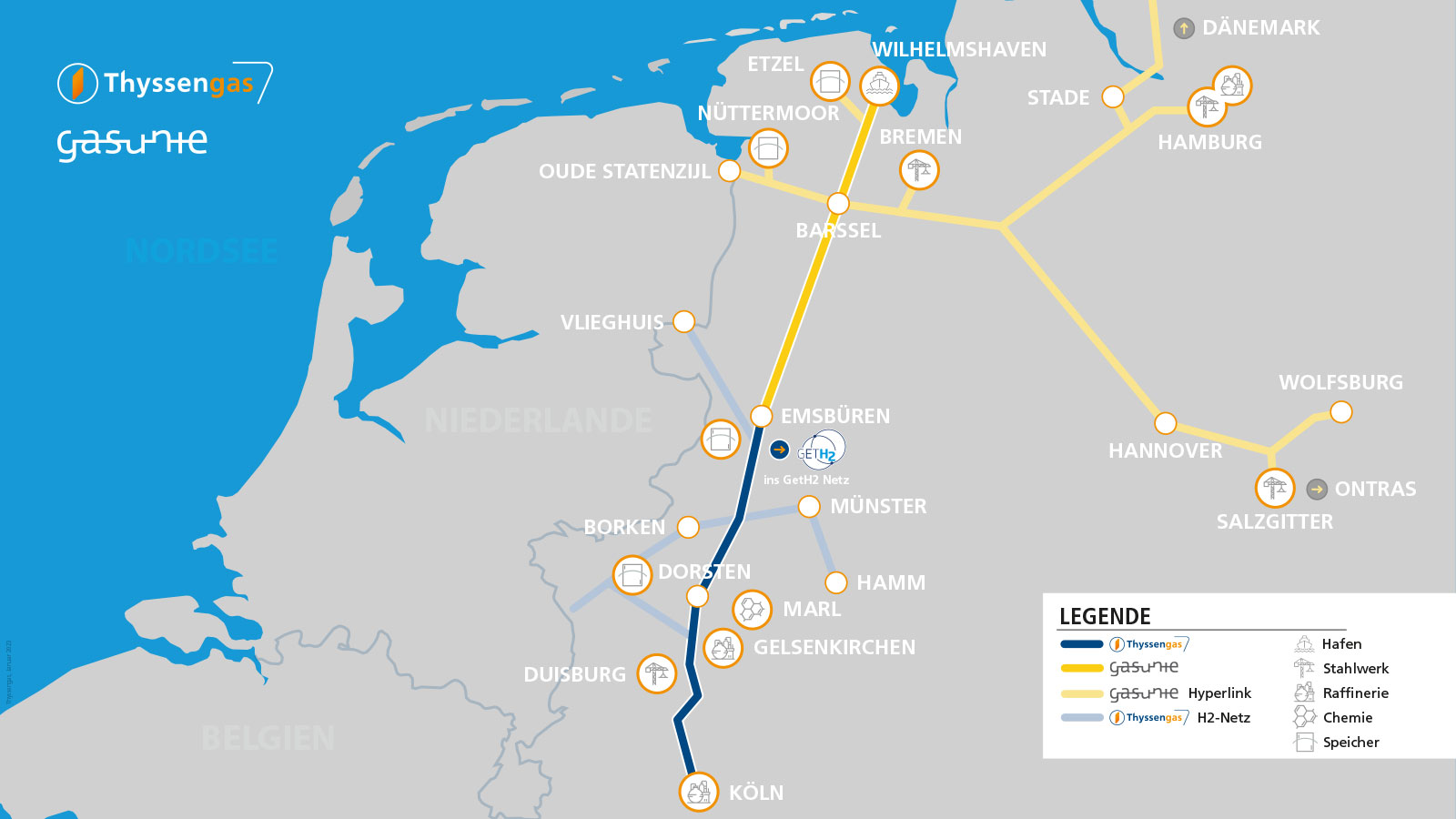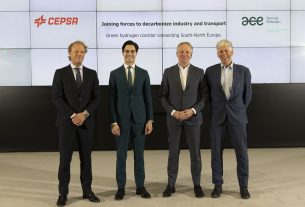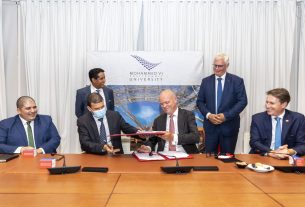Germany – Gasunie and Thyssengas have unveiled detailed proposals for a hydrogen line between Wilhelmshaven and Wesseling in Cologne.
Starting in 2028, hydrogen quantities produced in Wilhelmshaven or imported from Norway, among other places, will be transferred directly to Rhine and Ruhr consumption hubs via the north-south connection.
The efficient H2 corridor is made possible by redesigning existing project partners’ transportation routes and constructing new parts. Because of the significance of the infrastructure project, both Gasunie and Thyssengas have submitted PCI applications to the European Commission for the two parts.
The route’s main advantage is that it connects existing hydrogen clusters and projects. It connects to the Hyperlink hydrogen network proposed by Gasunie in the north and the sub-projects of the GETH2 hydrogen initiative for which Thyssengas is responsible in the south.
Furthermore, the significant consumption centers from the Münsterland to the Rhineland can be supplied with hydrogen in conjunction with other planned pipeline projects. The planned north-south corridor will thus contribute significantly to the establishment of an integrated hydrogen network in Germany and the expansion of the European hydrogen market.
Northern section
The northern component is made out of the Wilhelmshaven-Hyperlink-Connection section, for which Gasunie has applied for PCI.
The Hyperlink connection provides the following benefits to Wilhelmshaven hydrogen feeders: On the one hand, there is a direct link to the Dutch Gasunie (HyNetwork Services) hydrogen network and the Danish Energinet hydrogen backbone. The direct connection to the hydrogen network in the Salzgitter area, on the other hand, allows hydrogen to be transported to Berlin.
Southern section
Thyssengas, the transmission system operator, has submitted a PCI application to the EU for the southern leg of the project between Barßel (hyperlink) and Cologne / Wesseling, and will work with Gasunie to promote the sub-project. The consumption centers in North Rhine-Westphalia can be linked to the north-south hydrogen corridor – from the Münsterland to the chemical district of Cologne – through consistent integration with existing H2 line projects. Connections to the hydrogen cluster GETH2, future hydrogen storage facilities, and the hydrogen border crossing point in Vlieghuis (Netherlands) are planned for this purpose.
The integrated network planning of NRW’s various energy infrastructures of electricity, gas, and hydrogen ensures that both medium-sized businesses and major customers such as chemical parks and steel factories have a realistic chance of receiving hydrogen in the near future. It would also be conceivable to forward the H2 quantities made available in this manner to southern Germany using the H2 network determined in the hydrogen variant of the Gas Network Development Plan 2022-2032.




